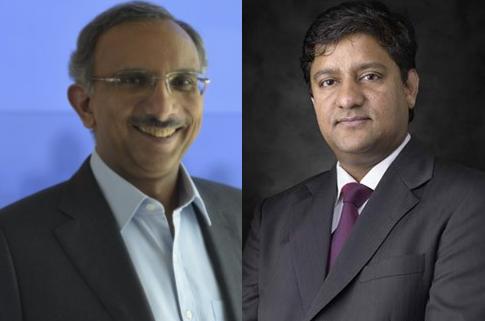
DSK Legal has widened its management, appointing Sajit Suvarna as deputy managing partner alongside the firm’s managing partner Anand Desai as the firm has completed over two years in its new equity system.
According to a press release sent on 26 October, managing partner Anand Desai said: “I am delighted to announce Sajit’s promotion. He has consistently demonstrated leadership qualities, and built an excellent practice in his chosen field.”
Suvarna has headed DSK’s real estate vertical, and in the press release he commented: “It has been an extremely fulfilling journey, starting as an associate and now being promoted as the deputy managing partner of the firm. This emphasises what every young lawyer in a professional firm can aspire to achieve. It is also a huge responsibility that the firm has put on me, and I hope to be able to discharge the same and assist the firm achieve greater heights.”
Suvarna’s new role would be primarily about assisting Desai in management. “He’ll be largely, for-now, supporting plus looking at new initiatives with me, as any new initiative takes time to develop,” said Desai. “I see a lot of scope.”
This would include looking at increasing the firm’s ability to win restructuring work as well as in the application of technology, such as smart contracts, and online dispute resolution and court hearings.
“The firms that actually adapt through this period, it is going to be a very rewarding adapation,” noted Desai.
Growing partnership
The appointment was therefore also a function of the increasing size of the firm, in that Desai would not remain the sole point person for every decision, although it also went hand-in-hand with making decisions as the entire partnership of 21 full partners and 11 associate partners, he said.
Around 2016-17, the firm had been much smaller. “We realised that in terms of size, we don’t get to pitch for certain assignments because we were not that kind of scale,” said Desai.
But over the past two years the firm had grown significantly, he added, with lateral hire teams from Trilegal, Cyril Amarchand Mangaldas, HSA Advocates and Link Legal India Law Services. (At the same time, the firm had also lost a partner Maneesh Upadhyay to JSA and co-founder Satish Kishanchandani, who started Pioneer Legal).
The last of the joiners, chronologically, Dinesh Pardasani, had joined in April, entirely virtually without even having seen the firm’s office.
That has in some ways been a “good time”, said Desai. “The ability to monitor, track, etc. has really gone up. That’s been making people more accountable also, to let them understand what they need to do to grow as professionals.
“All that has come together well, we have been seeing the results in the last few months.”
The second element has been to “actually try and promote the kind of work people want to do”, said Desai. So if one partner’s involvement in matters increased just for a piece of specialised advice in a vertical - even if they were not the partner leading a transaction - then their expertise also increased.
Equity model
The new equity system is slightly softer and has now been operating for around two years, for the years ending 31 March 2019 and 31 March 2020.
threads most popular
thread most upvoted
comment newest
first oldest
first
www.legallyindia.com/lawfirms/dsk-fee-earners-partners-take-home-10-30-less-cash-as-part-of-cashflow-management-20200508-11404
threads most popular
thread most upvoted
comment newest
first oldest
first